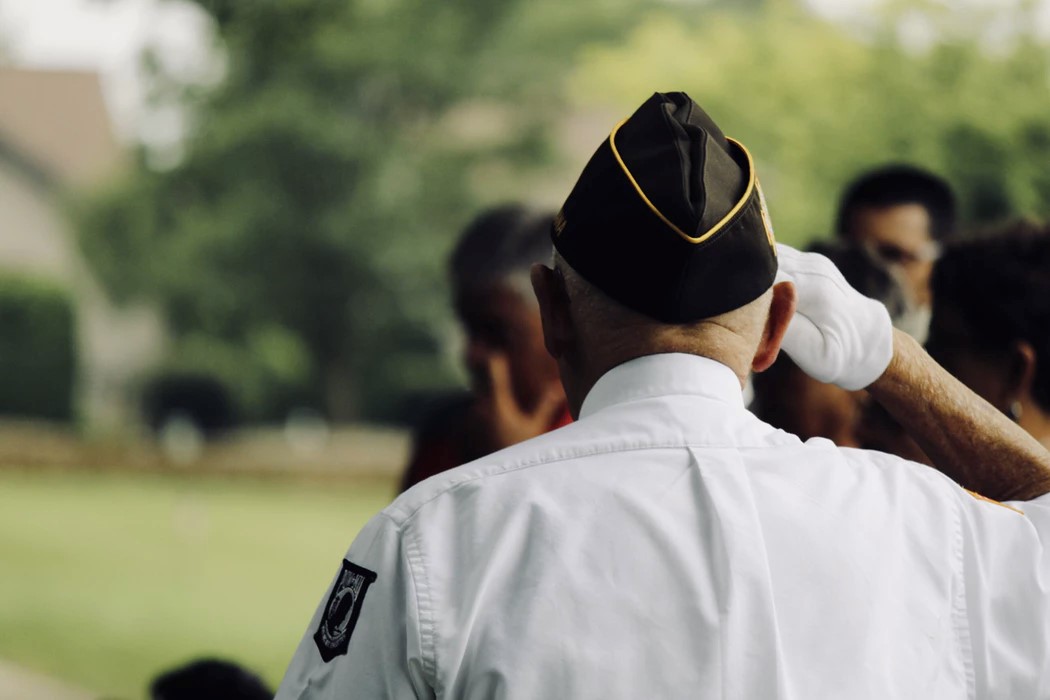
Image Source: Unsplash
Over the last several years, the opioid epidemic has claimed over 47,000 lives via overdose and other negative side effects, with the brave veterans of our armed forces making up 19.85 deaths per 100,000 people. When veterans return home from duty, many of them are faced with new challenges, including physical and mental ailments, and a good number are prescribed some form of opioid to quell the pain. Unfortunately, what starts out as medication can turn deadly.
The issue is that the opioid crisis has gone on for far too long, and now those who are addicted to them are having a harder time than ever trying to decrease their dependence on them. Luckily, there are a number of organizations that are trying to provide assistance to such individuals, and there may be a light at the end of the tunnel.
The Opioid Crisis
You have likely heard about the opioid crisis on the news, and it is as serious as it sounds. Opioids come in many forms, either as a variation of heroin or as any number of prescribed medicines, such as codeine, morphine, oxycodone, and fentanyl, among others. Aside from heroin, the prescriptions are generally given by medical professionals with the best intentions. However, patients can become addicted.
Opioids are prescribed for numerous medical issues including recurring back and head pain, sports injuries, recovery after surgery, and cancer. They work by attaching to nerve cells in the brain, and when the individual feels pain, the opioids block the pain messages and leave the patient at ease. The problem is, as with illegal drugs, the pleasurable feeling that some get from opioids makes them addictive as the individual keeps craving that same feeling.
Opioids can become even more addictive when they are not taken as prescribed. Opioid addiction can lead to many adverse side effects, including depression, lowered motivation, and anxiety attacks. For many, opioid addiction can result in death. It is becoming an epidemic, as opioid deaths have risen five times over in the last 20 years. Current numbers show that 130 people die from opioids every day.
How are Veterans Being Affected?
Veterans are one of the most at-risk groups when it comes to opioid addiction. Advocates even say that veterans are twice as likely to suffer serious negative effects of opioids than those who haven’t served. In fact, studies show that veteran deaths as a result of opioids have risen by 65% from 2010 to 2016.
For the most part, veterans are being prescribed opioids as a result of injuries sustained during their service. In addition to injuries acquired during battle, many vets have been exposed to harmful chemicals, including asbestos. Proximity to asbestos was especially prominent prior to the 1970s, when those inside submarines and aircraft were routinely exposed to it.
In addition to seeking relief from physical ailments, there is an additional potential harm to those who take opioids to cope with mental issues such as depression or PTSD. A veteran may be at higher risk of depression due to taking opioids, and someone with depression may take opioids to help quell the pain of their sadness and their physical ailments.
Things can get even darker as those who are already addicted to opioids could turn to heroin abuse, which could ultimately lead to suicide. There are also studies that show that a mix of opioids and cannabis can lead to increased symptoms of anxiety and depression. This is a very serious connection as depression can often lead to suicide. Currently, 6,000 veterans commit suicide every year.
What Is Being Done?
Although there is no argument that we are in the middle of an epidemic, there are attempts being made to limit opioid addiction and to educate the public about proper pain management. Currently, the Trump administration has officially identified the opioid issue as a public health epidemic, and new legislation was signed in 2018 to curb the problems for vets and non-vets alike. The Support for Patients and Communities Act provides opioid treatment centers that are covered by Medicare and ensures that opioid prescriptions are sent through electronic means, so one individual is not given more than they need.
Also, the U.S. Department of Health and Human Services has rolled out a plan to battle opioid abuse through a campaign of recovery services, education, and a search for alternate medications. Those who are struggling with opioid addiction should seek help. National helplines are open all day, every day for people to call for support, and these services can even recommend counselors for additional help.
There are also studies that show that medical marijuana may also lead to a reduction in opioid addiction. Although mixing cannabis and opioids can be dangerous, some believe that using marijuana alone can actually take the place of opioids because it can help with the effects of PTSD, and it is considered less addictive. However, the use of marijuana can also have negative effects such as slowed reaction time, and those who use it may be disqualified for jobs such as positions with the federal government, so it remains to be seen if it can be a true cure.
Yes, the opioid crisis is a looming threat for our citizens and those who fought hard to protect our freedoms. But, with further education and dedication to a solution, this epidemic can be beaten.






Be the first to comment